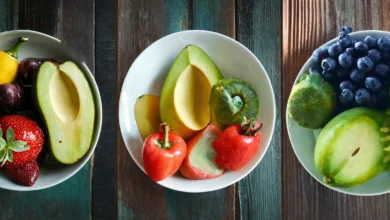How do I lose weight without doing exercise?

How do I lose weight without doing exercise?
Losing weight without exercise may seem challenging, but it’s entirely possible by understanding the science of weight management and making strategic lifestyle adjustments. This article will delve into the basics of weight loss, explore dietary strategies, discuss behavioral changes, and consider everyday activities that can contribute to a caloric deficit. We’ll also examine the role of supplements and natural remedies in weight reduction. Here are the key takeaways to guide you on your journey to losing weight without hitting the gym.
Key Takeaways
- Achieving a caloric deficit is essential for weight loss, even without exercise, by consuming fewer calories than your body burns.
- Adopting a whole foods-based diet and practicing mindful eating can significantly reduce calorie intake and improve satiety.
- Quality sleep and effective stress management are crucial for preventing hormonal imbalances that can lead to weight gain.
- Incorporating more movement into daily routines and leveraging non-exercise activity thermogenesis (NEAT) can increase caloric burn.
- While some supplements and natural remedies may offer modest benefits, they should complement, not replace, a healthy diet and lifestyle.
Understanding the Basics of Weight Loss
Caloric Deficit: The Fundamental Principle
Achieving a caloric deficit is the cornerstone of weight loss without exercise. This means consuming fewer calories than your body expends in a day. Creating a caloric deficit can be accomplished through dietary changes alone, without the need for physical exercise.
To understand how many calories you need to cut, it’s essential to know your Total Daily Energy Expenditure (TDEE). Here’s a simplified way to estimate your TDEE:
- Calculate your Basal Metabolic Rate (BMR) using an online calculator or formula.
- Multiply your BMR by an activity factor to account for daily movements and tasks.
- Subtract a manageable number of calories to create a deficit.
Remember, a moderate deficit of 500 to 1000 calories per day can lead to a safe and sustainable weight loss of about 1 to 2 pounds per week.
It’s important to approach this process with caution and ideally under the guidance of a healthcare professional to ensure that your nutritional needs are met and that you’re losing weight in a healthy manner.
The Role of Metabolism in Weight Management
Metabolism plays a crucial role in weight management as it determines how quickly your body converts food into energy. A faster metabolism can lead to more calories being burned throughout the day, even at rest, which can be beneficial for weight loss.
Basal Metabolic Rate (BMR) is the number of calories your body needs to maintain basic functions at rest. Factors such as age, sex, weight, and muscle mass influence your BMR. Here’s a simplified breakdown of how these factors might affect your BMR:
- Age: Metabolism typically slows down with age.
- Sex: Men often have a higher BMR than women.
- Weight: More body mass can increase BMR.
- Muscle Mass: Muscle tissue burns more calories than fat tissue.
To support your metabolism, focus on building lean muscle through protein-rich foods and staying active throughout the day to keep your metabolic engine running efficiently.
Understanding your own metabolic rate can help you tailor your diet to your body’s needs. For instance, someone with a slower metabolism might need to be more mindful of their caloric intake compared to someone with a faster metabolism. It’s important to remember that metabolism is just one piece of the weight management puzzle.
Macronutrients and Their Impact on Body Weight
Macronutrients are the nutrients that provide the bulk of our dietary energy: carbohydrates, proteins, and fats. Each plays a unique role in weight management and overall health.
- Carbohydrates are the body’s main energy source, but excessive intake, especially of refined carbs, can lead to weight gain.
- Proteins are essential for muscle repair and growth, and they can increase satiety, helping to reduce overall calorie intake.
- Fats, while calorie-dense, are necessary for nutrient absorption and can also promote fullness.
Balancing these macronutrients is crucial for maintaining a healthy body weight without the need for excessive exercise. A diet too high in any one macronutrient can disrupt this balance and potentially lead to weight gain.
Understanding the caloric density of each macronutrient can help in planning a balanced diet. Here’s a simple breakdown:
| Macronutrient | Calories per gram |
| Carbohydrates | 4 |
| Proteins | 4 |
| Fats | 9 |
By focusing on the quality and quantity of these macronutrients, individuals can create a diet that supports weight loss or maintenance without relying on physical exercise.
Dietary Strategies for Weight Reduction
Adopting a Whole Foods-Based Diet
Switching to a whole foods-based diet is a powerful strategy for weight loss without exercise. Whole foods are minimally processed and closer to their natural state, providing essential nutrients without the excess calories and additives found in processed foods.
- Fruits and Vegetables: Rich in fiber and low in calories, they help you feel full longer.
- Whole Grains: Quinoa, brown rice, and oats offer sustained energy and digestion benefits.
- Lean Proteins: Chicken, fish, and legumes support muscle maintenance and satiety.
- Healthy Fats: Avocado, nuts, and seeds contribute to fullness and nutrient absorption.
Embracing a whole foods-based diet not only aids in weight loss but also improves overall health. It encourages the consumption of a variety of nutrients while reducing the intake of unhealthy fats, sugars, and sodium.
By focusing on whole foods, you naturally reduce your calorie intake without the need to count calories meticulously. This approach simplifies eating habits and makes it easier to maintain a healthy weight in the long term.
Mindful Eating: Techniques and Benefits
Mindful eating is about being fully present during meals, paying attention to the experience of eating, and listening to your body’s hunger and satiety signals. It’s a practice that can help you enjoy your food more and prevent overeating.
The benefits of mindful eating include improved digestion, better emotional relationship with food, and often, weight loss.
To practice mindful eating, consider the following steps:
- Begin with small portions to avoid overeating.
- Eliminate distractions such as TV or smartphones during meals.
- Chew your food thoroughly and savor each bite.
- Pause between bites and assess your hunger level.
- Stop eating when you feel comfortably full, not stuffed.
Mindful eating is not about strict dietary rules or deprivation; it’s about experiencing food more intensely and recognizing your body’s needs.
Intermittent Fasting: An Overview
Intermittent fasting (IF) is a dietary approach that cycles between periods of fasting and eating. Unlike traditional diets, IF does not specify which foods you should eat but rather when you should eat them. There are several methods of IF, each with its own schedule and benefits.
The most popular methods include the 16/8 method, where you fast for 16 hours and eat during an 8-hour window, and the 5:2 method, where you eat normally for 5 days and restrict calories to 500-600 for 2 days a week.
- 16/8 Method: Fast for 16 hours, eat during 8 hours
- 5:2 Method: 5 days of normal eating, 2 days of 500-600 calories
- Eat-Stop-Eat: 24-hour fast once or twice a week
- Alternate-day fasting: Alternate between normal eating days and fasting days
Intermittent fasting can lead to weight loss by promoting hormonal balance, reducing inflammation, and improving metabolic health. It’s important to choose a method that fits your lifestyle and to consult with a healthcare provider before starting IF, especially if you have underlying health conditions.
While IF can be an effective tool for weight loss, it’s not suitable for everyone. It requires discipline and may be challenging to maintain long-term. Additionally, the timing of meals can be crucial, as eating late in the day may negate some of the benefits of fasting.
Hydration and Its Effect on Appetite Control
Maintaining proper hydration is a key element in managing appetite and, consequently, weight loss. Drinking water can help to fill the stomach, leading to a feeling of fullness and reducing the likelihood of overeating. It’s not uncommon to mistake thirst for hunger, so ensuring adequate water intake can prevent unnecessary snacking.
Adequate hydration also supports the body’s metabolic processes, including the digestion and transportation of nutrients, which are vital for maintaining a healthy weight.
Here are some hydration tips to help control appetite:
- Start your day with a glass of water to activate your digestive system.
- Drink a glass of water before each meal to reduce hunger.
- Replace sugary drinks with water to eliminate empty calories.
- Keep a water bottle handy throughout the day to encourage regular sipping.
By integrating these hydration habits into your daily routine, you can support your weight loss goals without the need for exercise.
Behavioral Changes to Support Weight Loss
The Importance of Sleep in Weight Regulation
Adequate sleep is a critical component of weight management. Poor sleep can disrupt hormonal balances, affecting hunger and appetite regulation. Hormones like ghrelin, which signals hunger, and leptin, which signals satiety, can become imbalanced, leading to increased appetite and cravings for high-calorie foods.
Consistent, quality sleep helps maintain the body’s metabolism and assists in proper digestion and recovery, which are essential for weight loss.
Sleep deprivation not only increases the risk of weight gain but also hampers the body’s ability to lose weight. Here are some tips to improve sleep quality:
- Establish a regular sleep schedule by going to bed and waking up at the same time every day.
- Create a restful sleeping environment by keeping the bedroom dark, quiet, and cool.
- Avoid caffeine and heavy meals close to bedtime.
- Limit exposure to screens and bright lights in the evening.
By prioritizing sleep, individuals can support their weight loss goals without the need for exercise, making it a vital, yet often overlooked, factor in weight management.
Stress Management and Emotional Eating
Managing stress is crucial when trying to lose weight without exercise. High stress levels can lead to emotional eating, where food becomes a comfort rather than a source of nutrition. Identifying triggers and developing coping strategies is essential to prevent stress-related overeating.
- Recognize the signs of emotional eating, such as craving specific comfort foods.
- Find alternative stress-relief methods, like meditation, deep breathing, or a hobby.
- Keep a food diary to monitor eating patterns and identify emotional triggers.
Creating a stress management plan can help you avoid the pitfalls of emotional eating and stay on track with your weight loss goals.
It’s important to remember that emotional eating can sabotage your efforts to create a caloric deficit. By addressing the psychological aspects of eating, you can make more mindful choices that align with your weight loss objectives.
Building Healthy Habits for Sustainable Weight Loss
Sustainable weight loss is not just about a temporary diet or program; it’s about creating a lifestyle that supports a healthy body weight over the long term. Building healthy habits is crucial for maintaining weight loss without the need for constant, strenuous exercise.
- Start with small changes: Incorporate more fruits and vegetables into your meals.
- Plan your meals ahead of time to avoid impulsive, unhealthy choices.
- Prioritize sleep to help regulate hunger hormones.
- Find a support system, whether it’s friends, family, or an online community.
Consistency is key. It’s the daily habits that you stick to over time that will result in sustainable weight loss.
Remember, the goal is to make these habits second nature, so they become part of your daily routine without feeling like a chore. This approach not only helps in losing weight but also in maintaining a healthy lifestyle.
Leveraging Everyday Activities for Caloric Burn
Incorporating More Movement into Your Routine
While exercise is a common method for burning calories, simply incorporating more movement into your daily routine can also contribute to weight loss. Small changes can lead to significant results over time.
- Take the stairs instead of the elevator.
- Walk or bike for short trips instead of driving.
- Stand up and stretch every hour if you have a desk job.
- Park further away from store entrances.
By making these small adjustments, you’re not only burning extra calories, but also improving your overall health and cardiovascular fitness without the need for structured exercise.
Remember, consistency is key. It’s not about making one big change, but rather integrating movement throughout your day to increase your total energy expenditure.
The Power of NEAT: Non-Exercise Activity Thermogenesis
Non-Exercise Activity Thermogenesis (NEAT) refers to the calories you burn through daily activities that are not considered formal exercise. NEAT can significantly contribute to your daily caloric expenditure, often without you even realizing it. Simple actions such as walking to the mailbox, gardening, or even fidgeting at your desk can add up to a substantial amount of burned calories over time.
By increasing your NEAT, you can boost your metabolism and create a caloric deficit, which is essential for weight loss, without setting foot in a gym.
Here are some easy ways to enhance your NEAT:
- Stand up while taking phone calls
- Take the stairs instead of the elevator
- Park further away from your destination
- Use a standing desk or take frequent breaks to walk around if you have a sedentary job
Incorporating these small changes into your daily routine can make a big difference in your overall energy expenditure. While NEAT should not replace regular exercise, it serves as a valuable addition to a weight loss strategy focused on reducing caloric intake.
Making the Most of Household Chores
Household chores can be an unexpected ally in your weight loss journey. Turning daily tasks into mini-workouts can increase your caloric expenditure without the need for structured exercise. For instance, activities like vacuuming, gardening, and even washing dishes engage different muscle groups and can be surprisingly effective at burning calories.
- Vacuuming: Engage your core and add some lunges.
- Gardening: Squat instead of bending over, and use manual tools.
- Washing Dishes: Stand on one leg to challenge balance, then switch.
By incorporating these subtle changes, you can transform mundane activities into opportunities for fitness. It’s about making the most of what you’re already doing, turning the ordinary into the extraordinary.
Remember, consistency is key. Integrating these small adjustments into your daily routine can lead to significant results over time. Keep track of your activities and try to progressively increase the intensity or duration to continue challenging your body and promoting weight loss.
Supplements and Natural Remedies
Understanding the Role of Dietary Supplements
When considering weight loss without exercise, dietary supplements may seem like an attractive option. However, it’s crucial to understand their role and limitations. Supplements should not replace a balanced diet, but can be used to fill nutritional gaps or provide a temporary boost in conjunction with healthy eating habits.
Supplements come in various forms, including vitamins, minerals, fiber, and protein powders. Here’s a brief overview of their potential uses:
- Vitamins and Minerals: Help correct deficiencies that may hinder weight loss.
- Fiber: Can promote satiety and support digestive health.
- Protein Powders: Assist in muscle maintenance and can reduce hunger.
While some supplements claim to boost metabolism or burn fat, evidence supporting these effects is often limited. It’s essential to approach them with a critical eye and consult healthcare professionals before starting any supplement regimen.
Remember, the most sustainable weight loss comes from lifestyle changes that include a nutritious diet and, if possible, increased physical activity. Supplements may offer support, but they are not magic pills for weight loss.
Natural Appetite Suppressants: Do They Work?
The market is flooded with natural appetite suppressants claiming to help you curb hunger and reduce caloric intake. But do they really work? While some may offer temporary relief from hunger pangs, their effectiveness is often not supported by strong scientific evidence.
- Fiber: Adds bulk to your diet, making you feel full longer.
- Protein: Increases satiety and reduces hunger.
- Water: Drinking water before meals can lead to reduced calorie consumption.
- Green tea extract: Often touted for its potential to increase metabolism and fat burning.
It’s important to approach natural appetite suppressants with caution. While they can be part of a weight loss strategy, they should not replace a balanced diet and healthy lifestyle.
Remember, the best way to achieve a sustainable weight loss is through a combination of dietary changes and behavioral modifications. Relying solely on suppressants is unlikely to yield long-term success.
The Truth About Fat-Burning Supplements
The market is flooded with supplements claiming to enhance fat loss, but the truth is that most have little scientific backing. Many fat-burning supplements are not rigorously tested for effectiveness or safety.
While some ingredients found in these supplements, such as caffeine or green tea extract, have been shown to have a modest effect on metabolism, the overall impact on weight loss is often minimal. It’s important to approach these products with skepticism and to consider the potential risks and side effects.
- Caffeine: May increase metabolism and fat oxidation
- Green Tea Extract: Contains catechins that might aid in weight loss
- Conjugated Linoleic Acid (CLA): Mixed results in studies on fat loss
Remember, no supplement can replace the fundamental principles of weight loss, which involve a balanced diet and a healthy lifestyle. Supplements should not be the primary strategy for losing weight.
Before considering fat-burning supplements, it’s advisable to consult with a healthcare professional. This is especially important for individuals with pre-existing health conditions or those taking other medications.
Conclusion
In conclusion, losing weight without exercise is certainly possible by adopting a mindful approach to diet, understanding the importance of portion control, and making lifestyle changes that promote a healthy metabolism. Incorporating nutrient-dense foods, staying hydrated, and ensuring adequate sleep are key components of a weight loss strategy that doesn’t rely on physical exercise. It’s important to remember that while exercise has numerous health benefits, weight management can be effectively achieved through dietary adjustments and other non-exercise activities. Always consult with a healthcare professional before making significant changes to your diet or lifestyle, especially if you have underlying health conditions. By making informed choices and committing to a sustainable plan, you can achieve your weight loss goals and improve your overall well-being.




